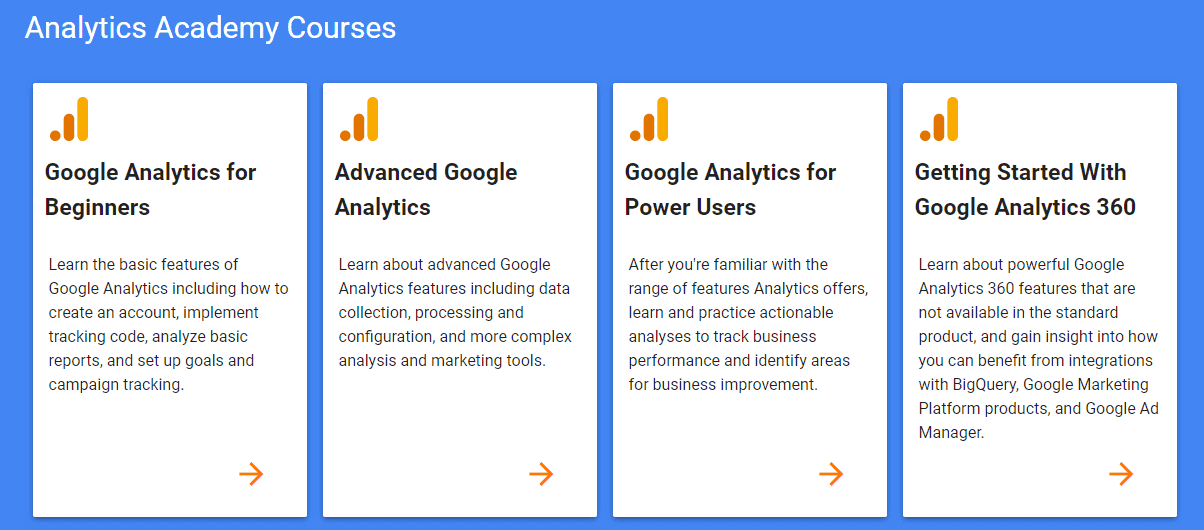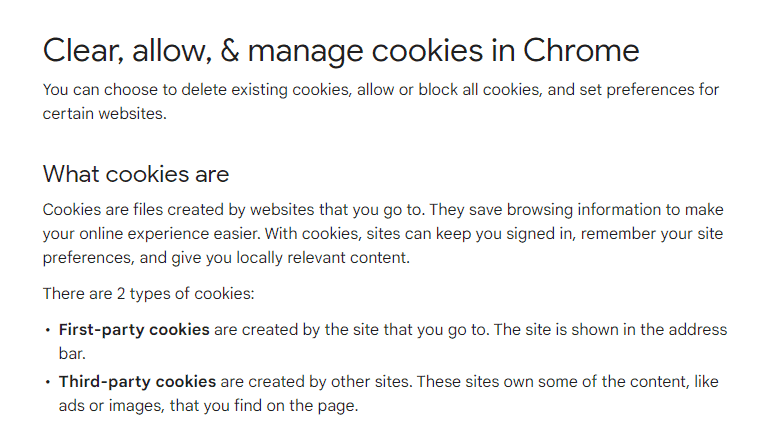Table of Contents
Looking for Google Analytics alternatives?
You’re in the right place.
The truth is that Google Analytics isn’t perfect. If you are serious about tracking your website data accurately, you can’t solely rely on Google Analytics.
There are plenty of solid Google Analytics alternatives out there. But not every alternative is worth it.
In this blog, I’ll show you 13 of the best Google Analytics alternatives you should consider for your website today.
3x Reasons Why You Should Start Using Google Alternatives
Yes, Google Analytics is a powerful platform and is a great “free” option.
But if you are dependent only on Google Analytics, you are missing out on a ton of insights from your website visitors that could affect your sales and conversions.
Here are 3 reasons you should consider using Google Analytics alternatives to supplement your data.
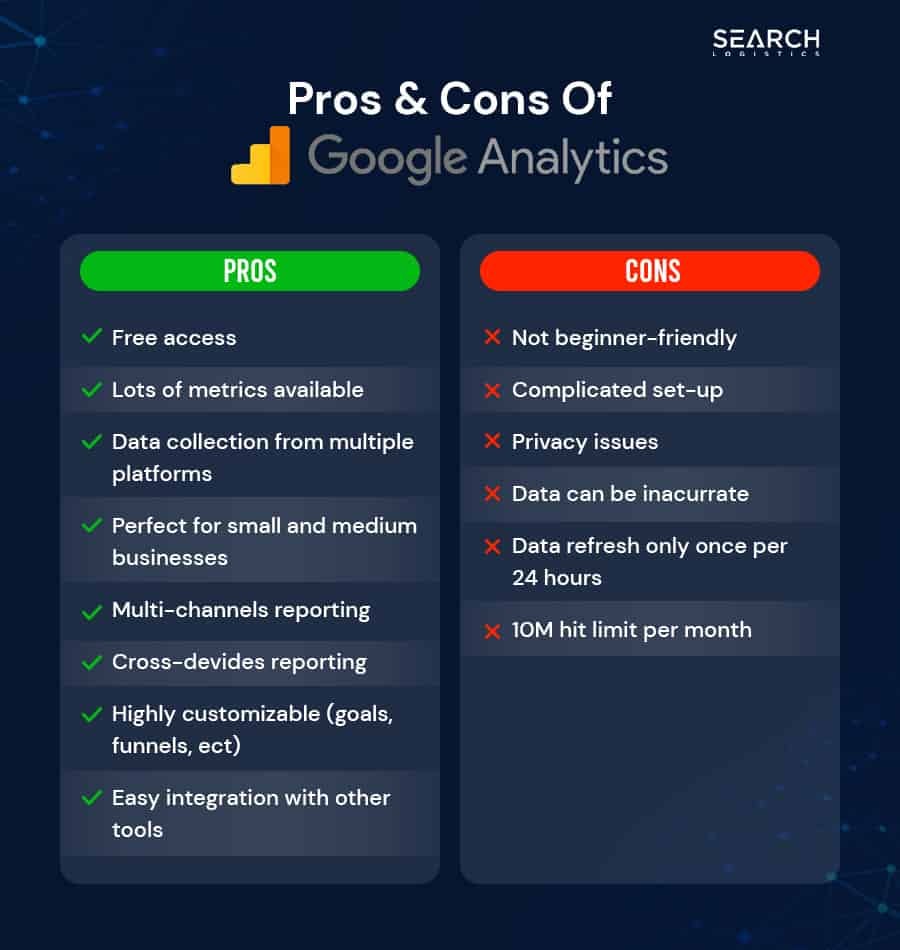
1. Unfriendliness
Google Analytics has a huge amount of great features.
But it’s also difficult to use.
One of the main reasons why people look for alternatives to Google Analytics is that it takes a lot of time to learn correctly.
Most people have to join the Analytics Academy (created by Google) to follow the free Google Analytics courses to learn how to use their tools properly!
On top of that, the user interface often changes, making it hard to keep track of what is going on.
Even setting up a simple conversion tracking goal isn’t exactly a straightforward process.
Most website owners don’t want to become Google Analytics pros.
They just want to:
- Track the critical events on their website
- understand how visitors engage with different site elements
That’s it!
Most Google Analytics alternatives are user-friendly and make it easier to get the important data and metrics you need most.
2. Privacy & Ethics
Google Analytics is “free”, right?
Not so fast!
You know there is no such thing as a free lunch.
Google Analytics is one of the main reasons that Google now has so much data and information on every single one of us.
Here’s how it works:
According to BuiltWith, approximately 35 million sites use Google analytics today. This includes 61% of the 100,000 most popular sites online.

Essentially every single site that installs Google Analytics gives Google direct access to all of its site visitors.
That means that Google can effectively track you individually across the web.
They know:
- What websites you’re visiting
- The topics that you’re interested in
- What you buy online
- Your likes and dislikes
And so much more.
All of this can (and is) used to send you more targeted advertisements and ultimately sell your more stuff.
This leads to a more significant issue about whether it’s ethical for Google to have all this data about each person online.
Many website owners believe it is a massive invasion of privacy, so they look for Google Analytics alternatives.
It’s also important to know that Google Analytics is not GDPR compliant because of privacy and ethical issues surrounding it.
3. Data Collection
One of the main issues with Google Analytics is that it can be inaccurate.
This is because it relies on cookies to track users, and cookies can be:
Some devices don’t work well with cookies, so those users will not be accurately tracked.
Google Analytics also doesn’t block bots and internal users very well. This can lead to a significant skew in data.
For example:
If you make an update to a page on your site and constantly visit the page to see the changes, you might think you are getting more traffic on that page than you actually are.
There are ways to prevent this from happening, but they aren’t very effective.
Google Analytics has a lot of issues when it comes to inaccurate and missing data. That’s what makes some of the other alternatives much more attractive.
13x Google Analytics Alternatives That Are Worth Trying
There are tons of Google Analytics alternatives available today.
But not every tool is worth your time. Each alternative also generally specialises in a specific part of analytics tracking.
To help you find the ideal Google Analytics alternative for you, I have broken down each tool into three different broader analytics categories:
- Lead & Customer Analytics
- SEO & Web Analytics
- Full Marketing & Analytics
This will help you identify the analytics tools that have the features you need much quicker to ensure you find an alternative that helps move your business forward.
Let’s jump in!
Lead & Customer Analytics
Understanding who your customers are and where they come from is one of the most important parts of any business.
The Google Analytics alternatives below will help you get more insights into what your customers want and what brings in the most leads for your business.
Piwik Pro
Piwik is the best Google Analytics alternative for businesses that care about their privacy and want to be in control of how much information gets shared with other organisations.
With Piwik, you can store all user data on your own servers rather than having it spread across different locations around the world.
That means no one will ever again have access to your data except you.
But privacy isn’t all that Piwik is known for.
They offer a robust analytics suite that lets you understand your customer’s journey across multiple devices.

What does that really mean?
You can see each time a visitor engages with your website, regardless of their device.
Piwik records each touch point with each visitor so you get a comprehensive overview of exactly what your customers are doing on your website.
Woopra
The company was founded in 2008, making Woopra one of the most experienced Google Analytics alternatives on the list.
Their goal is to help you take advantage of your data and make better decisions.
Woopra is ideal for people that aren’t “tech-savvy” but still need solid data analytics for their site.
Woopra’s comprehensive customer journey analysis provides insights into what customers care about and highlights what impacts their decision-making process.

This will help you understand how to do better marketing and show the right kinds of ads/messages at the right time.
It doesn’t get much better than that.
FoxMetrics
FoxMetrics takes analytics to a whole other level!
They have designed a great platform that takes complex data and turns it into usable information.
While primarily focused on restaurants, FoxMetrics helps you create customer profiles for each individual customer.
Here’s how it works:
You start by integrating all of your key data into the FoxMetrics platform.
This includes data from:
- Loyalty programs
- Gift cards
- Web ordering
- Mobile ordering
- Deliveries
…and so much more.
FoxMetrics helps you analyse all of this data and understand which channels help drive the most sales for your business.
You’ll also get insights into customer preferences, trends and even patterns in your local market.
From here, you will have all the information you need to develop your marketing and focus on the online and offline channels that will help you grow your restaurant further.
While it does take some time to get started, FoxMetrics is a powerful alternative to Google Analytics for restaurants ready to reach the next level.
Mixpanel
Mixpanel is trusted by thousands of businesses worldwide and boasts big-name users such as Uber, Expedia and GoDaddy.
Their goal is to build powerful analytics reports that can answer any questions you have about your business and market.
That’s a big promise, right?
Mixpanel was built on the belief that every interaction your customers make on your website means something.
As a result, Mixpanel goes well beyond the basics of tracking simple metrics like page views and time spent on page.

There are three big things that Mixpanel will do for you:
- See how your product is used
- Analyse and optimise your conversion funnels
- See who your most profitable customers are
What does all this mean?
Mixpanel will help you build custom user flows that you can leverage to analyse your traffic.
You’ll be able to see things like which offers convert into sales better and even see information about when you’re free vs paid users drop off in your conversion funnel.
There are many things you can do, and Mixpanel takes the complexity out of it!
While Mixpanel primarily focuses on SaaS-based companies, it can be used for almost any online business.
Heap
Think of Heap like Google Analytics on steroids.
Heap is a powerful data analytics intelligence platform that measures every little interaction customers have with your site (or mobile app) down to clicks and swipes.
But what really makes Heap stand out from the rest is how easy it is to use.
Simply install Heap on your site, and it will automatically start tracking all of your visitors’ interactions. There is no need to tag every button, link and page manually.
What can you do with all of this data?
Short answer – Generate more sales and leads.
Heap will automatically show points where customers drop off in your funnel.
It records individual sessions and tracks the user behaviour of customers that didn’t convert.

What’s more impressive is that when you log into the platform, Heap will show you the exact friction points they believe prevented the sale. It can be anything from the colour of a button to a poorly placed image.
You can also integrate over 100+ tools and marketing channels to create a seamless workflow of your customer journey.
Every online business and ecommerce store will benefit from the insights that Heap brings!
SEO & Web Analytics
Want to get more insights out of your organic traffic?
The following Google Analytics alternative tool will help you drive more search traffic to your site and help you optimise to generate more sales online.
Ahrefs
Ahrefs is my go-to SEO tool.
Why?
Because it’s one of the most comprehensive SEO tools, money can buy. It offers almost everything you need to execute high-level SEO campaigns efficiently.

But where Ahrefs really stands out is its link index and analysis tool suite.
If you know anything about SEO, you’ll know how important link building is to a successful SEO strategy.
Ahrefs has the most extensive database of backlinks on the planet.
More than that, Ahrefs also have the best tools to analyse link quality and ultimately build more links to your website.
But Ahrefs has a ton of other great features like:
- Advanced keyword research
- Complete SEO site audits
- Competitive analysis
- Content explorer
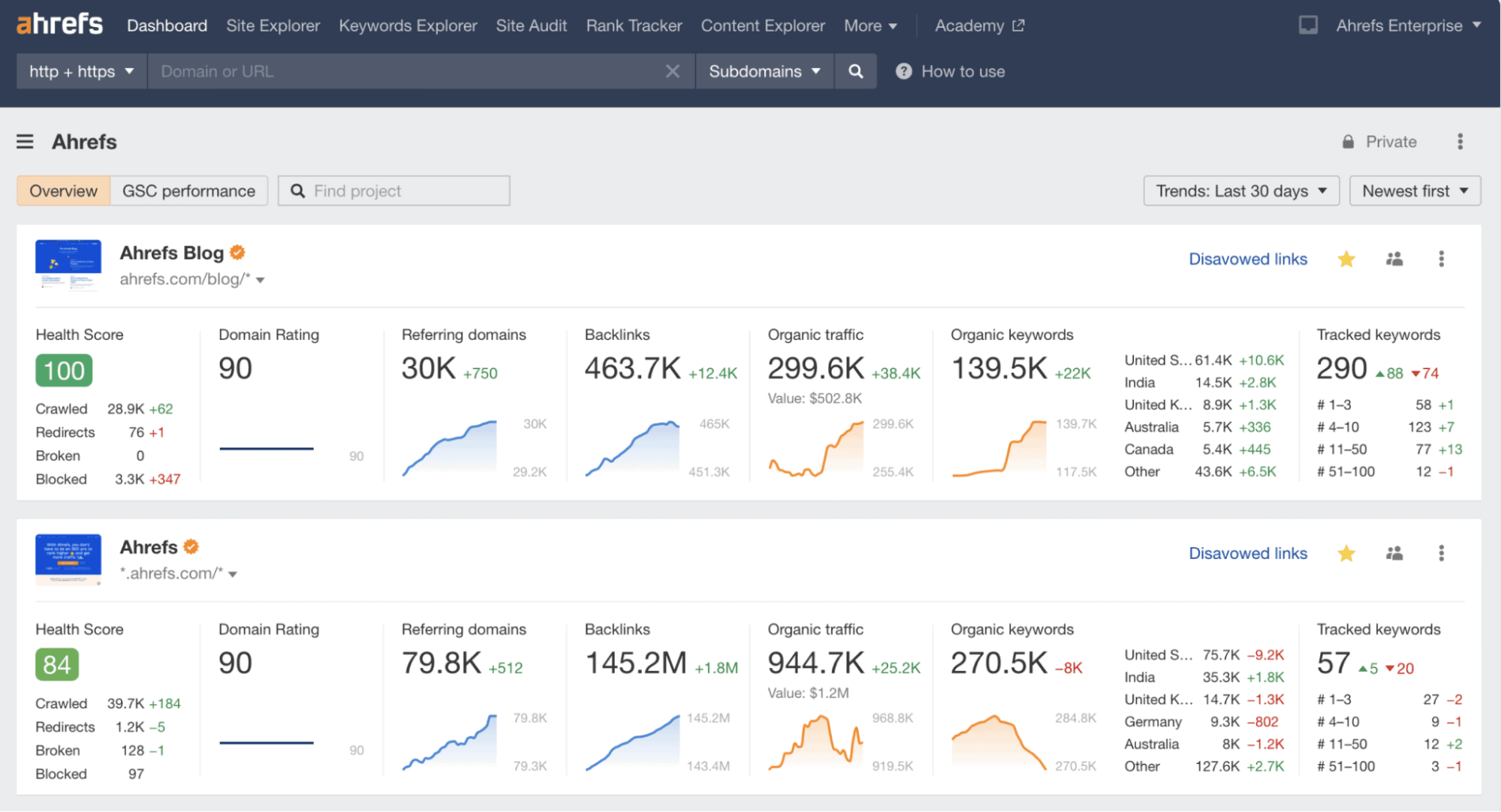
On top of all that, it’s also just a beautiful and easy-to-use platform.
If you are looking for an all-in-one SEO tool to level up your SEO campaigns, you can’t get better than Ahrefs!
Read my complete Ahrefs review to see everything this awesome tool can do.
Semrush
Semrush is definitely Ahrefs’ biggest competitor.
But Semrush isn’t just an all-in-one SEO tool. It has become a powerful SEO and online market research platform with many unique features.

There isn’t another tool on the planet that can offer the level of online market analysis that Semrush can.
Here’s what I mean:
Straight off the bat, Semrush offers unparalleled competitor analysis.
Type in your competitor’s domain name, and Semrush will estimate how much traffic your competitor gets and what keywords they rank for.

There are a ton of other great features like:
- Analyse your competitor’s social media strategies
- Uncover competitor’s SEO tactics
- See the top PPC ads for any keyword
- Run a complete SEO audit on your site
- Get content ideas
And so much more!
Semrush also has some excellent keyword research features. While they look a bit overwhelming, you’ll get a huge amount of insights.
Learn more about Semrush by reading through our complete Semrush review.
If you are interested in seeing the big differences between Ahrefs and Semrush, make sure you check out our Ahrefs vs Semrush review.
SE Ranking
If you don’t have the budget for Ahrefs or Semrush…
SE Ranking is the next best bet!
SE Ranking is a powerful all-in-one SEO tool that has a great user interface and even helps beginners start taking advantage of organic search traffic.

But just because it’s easy to use doesn’t mean it’s not powerful.
SE Ranking’s top SEO features include:
- Keyword rank tracker
- On-page and technical SEO auditor
- Keyword research tools
- Backlink checker
- SERP tracker
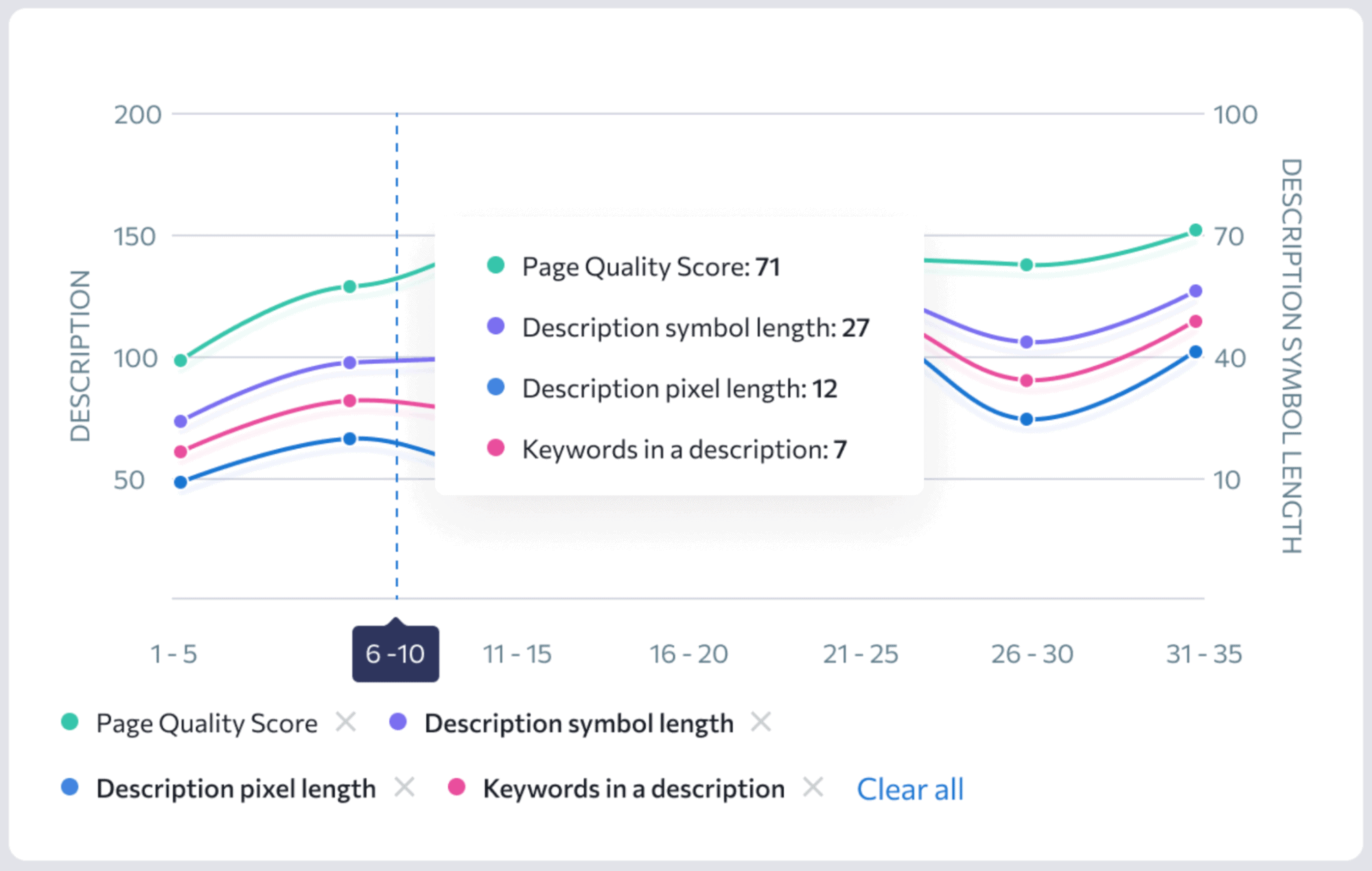
While SE Ranking’s tools aren’t necessarily groundbreaking, they are comprehensive.
And for the price they charge each month, SE Ranking is excellent value.
If you are looking for an SEO tool that won’t break the bank but still has all the tools you need, you can’t get much better than SE Ranking.
Matomo
Matomo is a great Google Analytics alternative with more insights – especially when it comes to organic traffic.
To start with, Matomo allows you to automatically import all of your Google Analytics data into the platform.
That means you get all the historical data that Google Analytics has already captured.
Cool, right?
Matomo comes with a great number of conversion optimisation features, including:
- Heatmaps
- Session recordings
- A/B testing
The platform also boasts unbiased SEO data with features like keyword rank tracking and the ability to see which keywords bring the traffic.
You’ll also own 100% of the data and have complete data privacy.
Matomo is a great alternative to Google Analytics that won’t break the budget!
Clicky
The first time you look at Clicky, you might think you are back in the early 2000s.
But don’t be fooled by the simple user interface.
Clicky is a great web analytics tool suite that offers simple yet powerful data insights. And the best part?
Clicky is completely free for 1 website.
Some of Clicky’s top features include heat mapping for individual pages and tracking all of your website’s top-line metrics, such as pageviews and events.
You’ll also be able to do basic data segmentation to quickly find relevant user sessions for your website.
The best part is that Clicky is GDPR compliant.
If you are looking for a free Google Analytics alternative where you still own the data, Clicky is a great place to start!
Full Marketing & Analytics Suites
Ready to take your marketing to the next level?
These last three tools are full-stack marketing and analytics suites designed to take your business up a notch.
Calling them Google Analytics alternatives is almost an insult to how powerful they really are.
Let’s jump in!
HubSpot
HubSpot is one of the biggest names in the marketing and data analytics world.
And for a good reason!
HubSpot has many powerful tools that help businesses connect and convert more leads into sales.
HubSpot is primarily a CRM software that comes with a solid business analytics platform. You can track things like:
- Traffic sources
- Page performance
- Conversions tracking
The best part is that all this information is linked to the CRM, so you get a complete picture of your customer’s entire life cycle.

On top of all these great features, HubSpot has tons of marketing tools like a landing page builder, marketing automation and even email marketing.
HubSpot isn’t cheap but has everything you need to market your business effectively.
Adobe Analytics
Adobe Analytics is essentially a comprehensive business intelligence tool.
That means it gives you actionable insights that help take your business further – not just a bunch of random reports you’ll never actually use.
Adobe Analytics makes integrating all of your marketing channels really easy. From here, you can create models and tags that capture the exact data you want.
What about their analysis features?
Adobe Analytics has a bunch of powerful analysis features such as:
- Advanced segmentation
- Custom-calculated metrics
- Marketing attribution
…and so much more.
You can even track offline data for physical businesses.

The only downside to Adobe Analytics is that it can feel a little clunky and requires some technical knowledge to take advantage of the platform.
But the depth of insight that the platform offers is up there with the best.
Kissmetrics
Kissmetrics is one of the OG’s of analytics tools.
It was originally founded by online marketing and SEO legend Neil Patel.
What makes Kissmetrics so powerful?
In Kissmetrics’ own words:
“Google Analytics tells you what’s happening. Kissmetrics shows you who’s doing it.”
The secret sauce for Kissmetrics is customer behaviour analysis.
The tool has probably the best tracking system of any analytics software today.
You can (in theory) go as far as tagging individual customers and tracking them as they engage with different aspects of your site and business.
Crazy, right?
One of the big things that Kissmetrics will help you with is understanding your customer better.
From there, the insights will help you optimise your marketing to convert more customers.

It can even help you automate customer engagement to create a flawless customer journey flow that makes you more money.
Who doesn’t want that?
If you run a SaaS or ecommerce company, Kissmetrics is one of the best marketing analytics software money can buy.
Wrapping It Up
Google Analytics is powerful, but it is far from perfect.
That’s why you need a trusted Google Analytics alternative to supplement the data and get more insights for your business.
All of the alternatives above can be useful for your business.
But the right one for you comes down to your business goals.
Think about what you want to accomplish, and then choose the tool that helps you get there.
Remember:
All analytics tools are only as good as what you use them for. Make sure you choose one that you can take full advantage of in your business.

